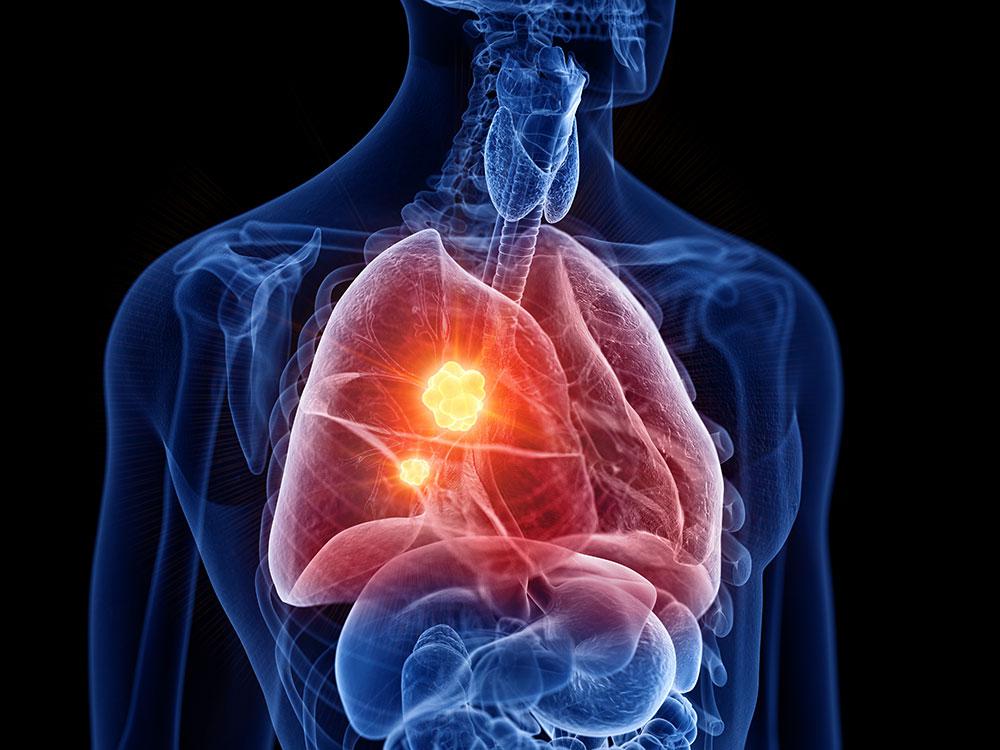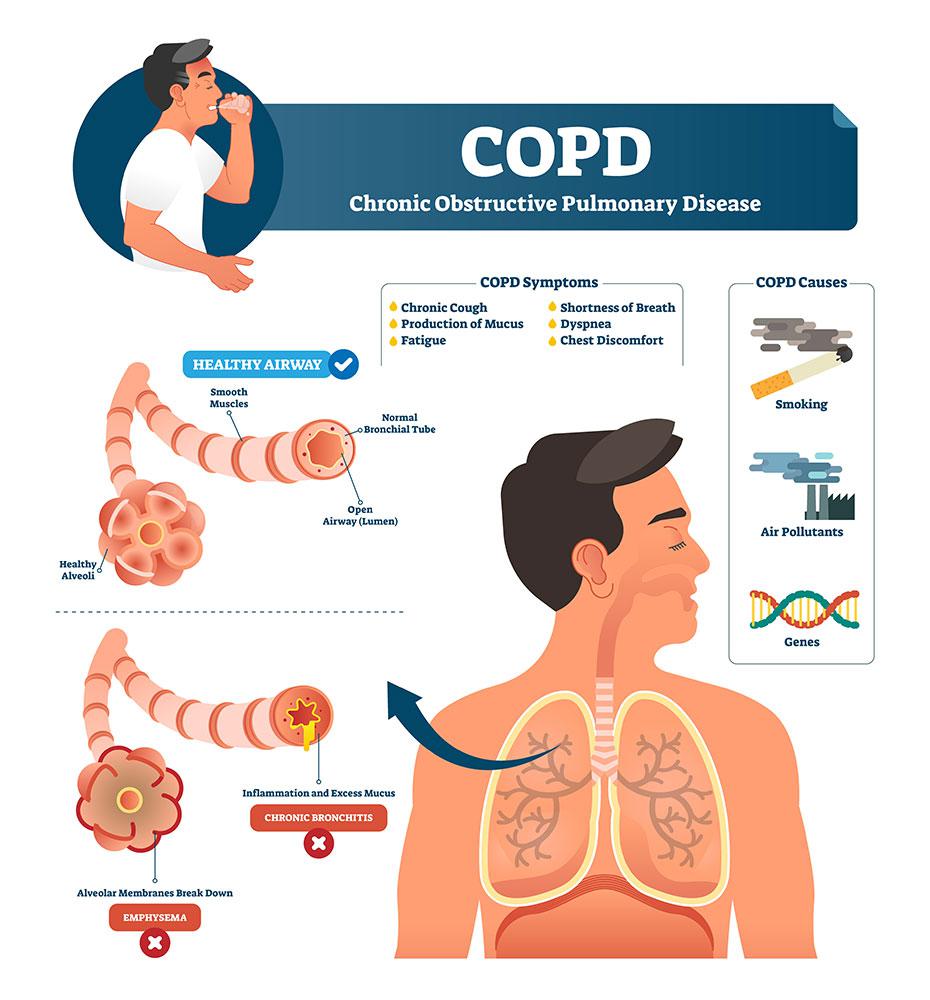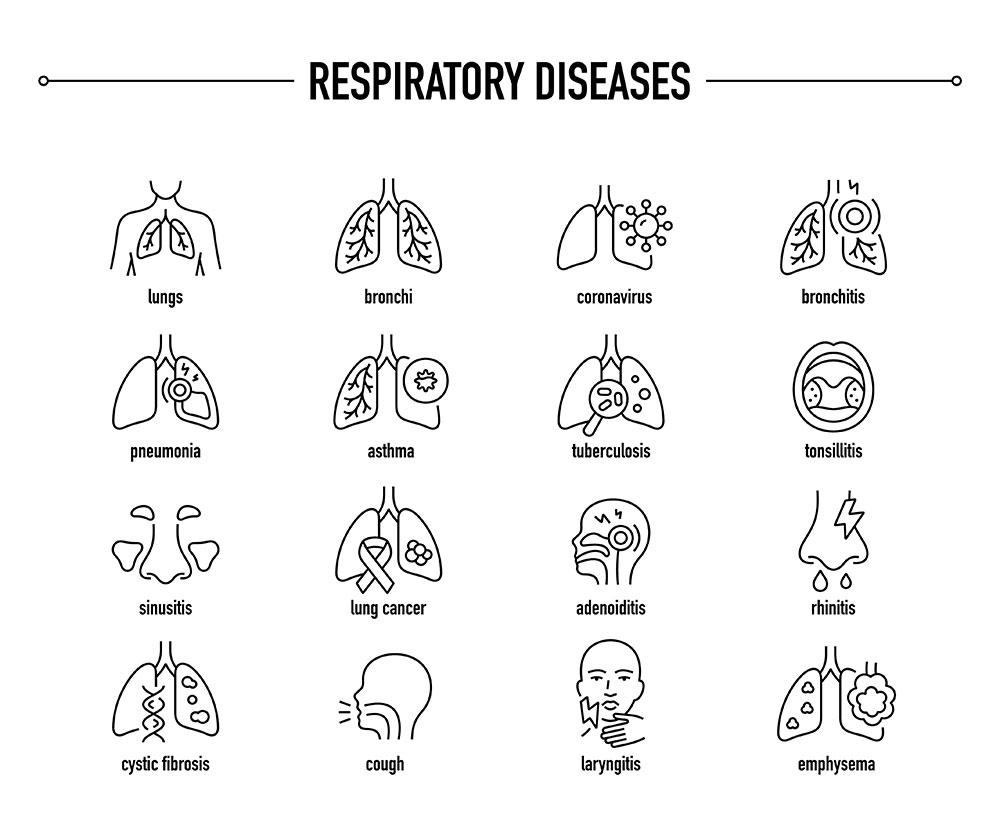 Your overall systemic health and oral health are intimately related to one another. What happens in your mouth can affect the rest of your body and vice versa. In addition, your general health condition may also affect the oral surgery procedure you get. In this particular blog, we will be focussing on Chronic Obstructive Pulmonary Disease and its impact on oral surgery. However, to understand the implications of Chronic Obstructive Pulmonary Disease on Oral and Maxillofacial Surgery, it is essential we first learn a bit about the disease itself. So, without further ado, let’s begin.
Your overall systemic health and oral health are intimately related to one another. What happens in your mouth can affect the rest of your body and vice versa. In addition, your general health condition may also affect the oral surgery procedure you get. In this particular blog, we will be focussing on Chronic Obstructive Pulmonary Disease and its impact on oral surgery. However, to understand the implications of Chronic Obstructive Pulmonary Disease on Oral and Maxillofacial Surgery, it is essential we first learn a bit about the disease itself. So, without further ado, let’s begin.
What is Chronic Obstructive Pulmonary Disease?
Chronic obstructive pulmonary disease, abbreviated as COPD, is a form of chronic lung disease. COPD is an inflammatory lung disease that leads to airflow obstruction in the lungs. This makes it difficult for the individual to breathe adequately.
The leading cause of COPD has been identified as smoking. That means smokers are the most susceptible to this disease. However, COPD can also affect non-smokers who are exposed to smoke, such as in cases of passive smoking. Other irritants that can cause COPD are long-term exposure to fumes from burning fuel, such as wood, chemical fumes, air pollution, and living in poorly ventilated homes.
The most common symptoms of COPD include:
-
Shortness of breath.
-
Wheezing.
-
Tightness in the chest.
-
Chronic cough, which may or may not be associated with sputum production.
-
Increased frequency of respiratory infections and colds.
-
Unintentional and sudden weight loss.
It has also been found that patients with COPD are at an increased risk of developing lung cancer, heart disease, and various damaging health conditions.
The two most common conditions that contribute to COPD are Emphysema and Bronchitis.
Chronic Bronchitis is the inflammation of the lining of the bronchial tubes (windpipe). Emphysema is a condition in which the alveoli (small air sacs in the lungs) are destroyed as a result of exposure to chronic smoke or irritating gases and particulate matter.
COPD is a progressive disease, meaning it starts with few symptoms but progresses to get worse with time. However, quitting smoking and reducing exposure to harmful gases and toxic fumes can reduce the progression of COPD.
How does COPD affect oral surgery?
 As we have already established, your oral health and overall health are intimately related. This also applies to your lung health. Chronic obstructive pulmonary disease has a significant impact on oral surgery.
As we have already established, your oral health and overall health are intimately related. This also applies to your lung health. Chronic obstructive pulmonary disease has a significant impact on oral surgery.
An individual with COPD is at a higher risk of dental decay, periodontal diseases, dry mouth, and infective oral condition. For these reasons, oral surgery may become necessary for these individuals.
Patients of COPD already have difficulty breathing, which can lead to complications during and after surgery if not adequately managed.
Therefore, it is crucial you give your oral surgeon in Phoenix a complete medical history during your initial consultation. This will allow your oral surgeon to take special precautions and eliminate the chances of any complications.
A patient with COPD may experience a bout of breathlessness during their treatment in the clinic which can lead to hypoxia (less oxygen in the lungs). This has to be managed with proper medications and oxygen therapy. Patients with COPD are also under steroidal drugs, which may pose a risk during surgery and lead to shock. Therefore, special considerations have to be paid with regard to pain management.
Can I go under anesthesia If I have COPD?
When considering anesthesia for patients with COPD, the risks and benefits need to be carefully weighed. Local anesthesia usually poses no challenge for patients with COPD.
Patients with COPD can undergo general anesthesia, but their lung capacities and functions must be carefully evaluated beforehand. Your oral surgeon in Phoenix may also refer you to a specialist for proper medical management before they schedule your oral surgery procedure. A proper analysis is done to determine the safest anesthesia method and dosage to use. If you have an active respiratory infection, it will have to be treated before you can be taken under anesthesia.
Why are COPD patients at a higher risk of infection?
Research and many clinical studies have found that individuals with COPD are often at a higher risk of infection. This can be attributed to a weakened respiratory and immune system. The mouth harbors millions of bacteria, and while most of them are harmless, some can be disease-causing under the right condition. Poor oral hygiene makes individuals with COPD more susceptible to developing fungal infections of the mouth and upper respiratory tract diseases. Infections can also lead to pneumonia and bronchitis, which are especially dangerous for patients with COPD.
If oral surgery is performed in the presence of active oral infection, the disease-causing organism can enter the upper airway and wreak havoc. Therefore, preexisting infective conditions have to be treated before oral surgery is performed. Sometimes, oral surgery procedures may have to be carried out to manage upper respiratory tract infections in emergencies properly. This is especially true in cases where the infective foci are in the mouth.
What respiratory diseases may be an issue for oral surgery?
 Bronchial asthma and sleep apnea are other respiratory diseases that pose a risk during oral surgery. Asthma is a chronic inflammatory respiratory disease that leads to the narrowing of the airways. Although local anesthesia does not pose any special risk in such cases, general anesthesia use has to be appropriately considered and with adequate precautions to ensure there are no complications.
Bronchial asthma and sleep apnea are other respiratory diseases that pose a risk during oral surgery. Asthma is a chronic inflammatory respiratory disease that leads to the narrowing of the airways. Although local anesthesia does not pose any special risk in such cases, general anesthesia use has to be appropriately considered and with adequate precautions to ensure there are no complications.
Sleep apnea is a respiratory condition where an individual experiences episodes of breathlessness while asleep. All these lung diseases must be considered and monitored carefully when a person opts for oral surgery.
Therefore, it is of utmost importance to let your oral surgeon know of any medical conditions and medications you may be taking. A proper health evaluation will safeguard you from any untoward instances. Please make sure you are taking all your medications as prescribed.
If you have any questions or wish to know more about our services, please get in touch with us at Phoenix Oral and Facial Surgery. Our team of excellent oral and maxillofacial surgery professionals is here to assist you and your family in better oral and overall health.

